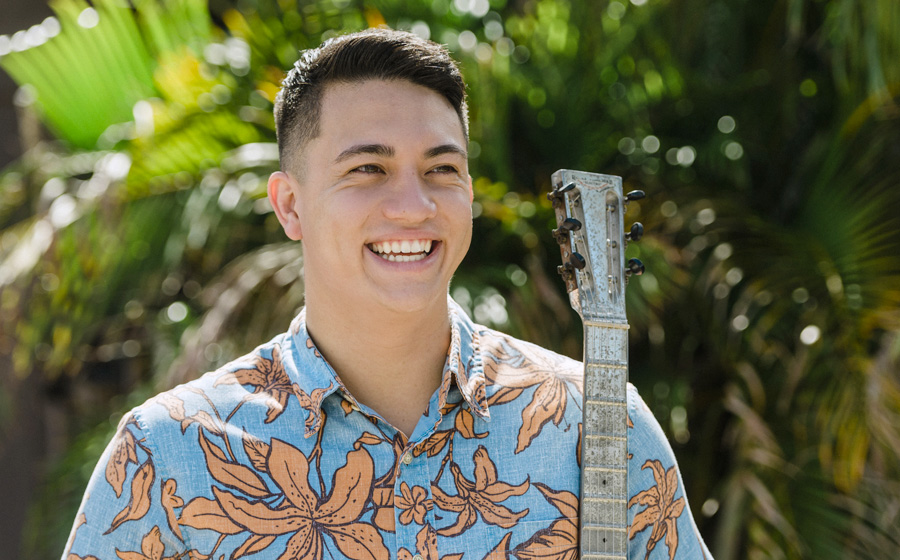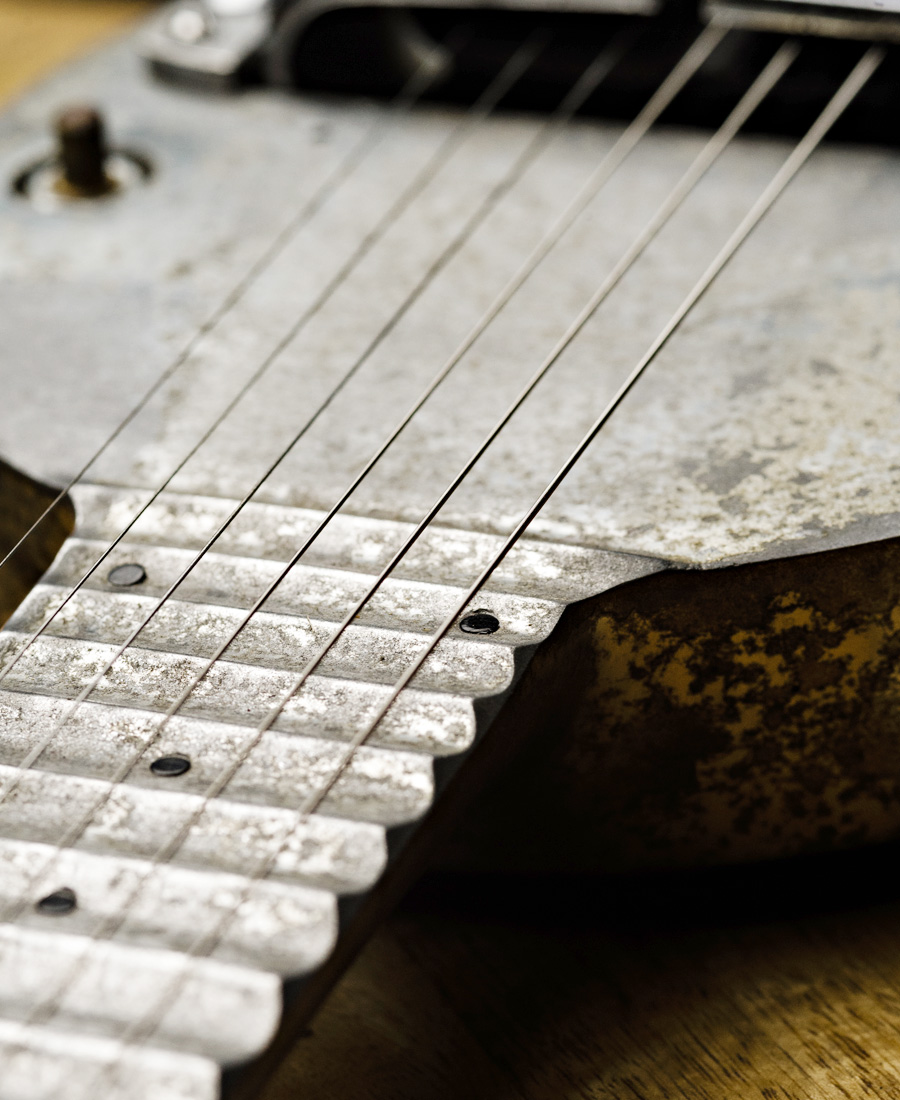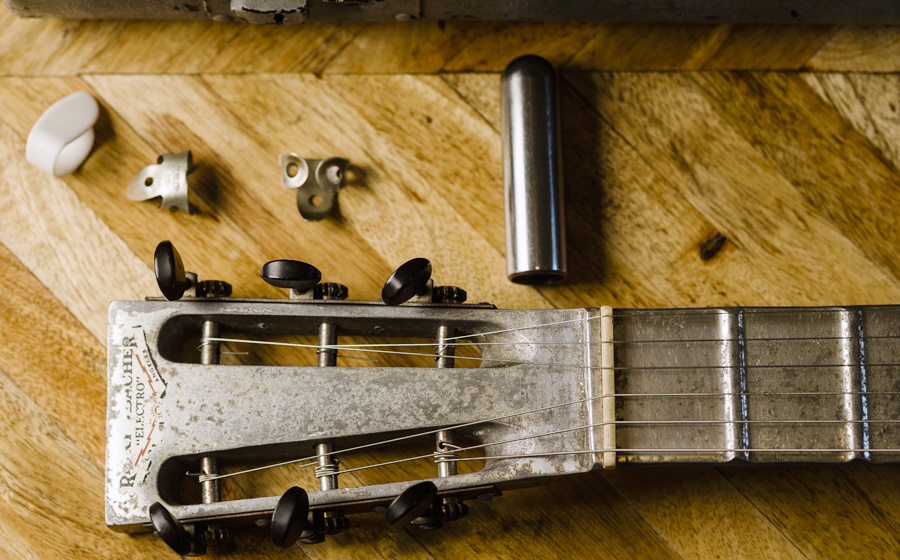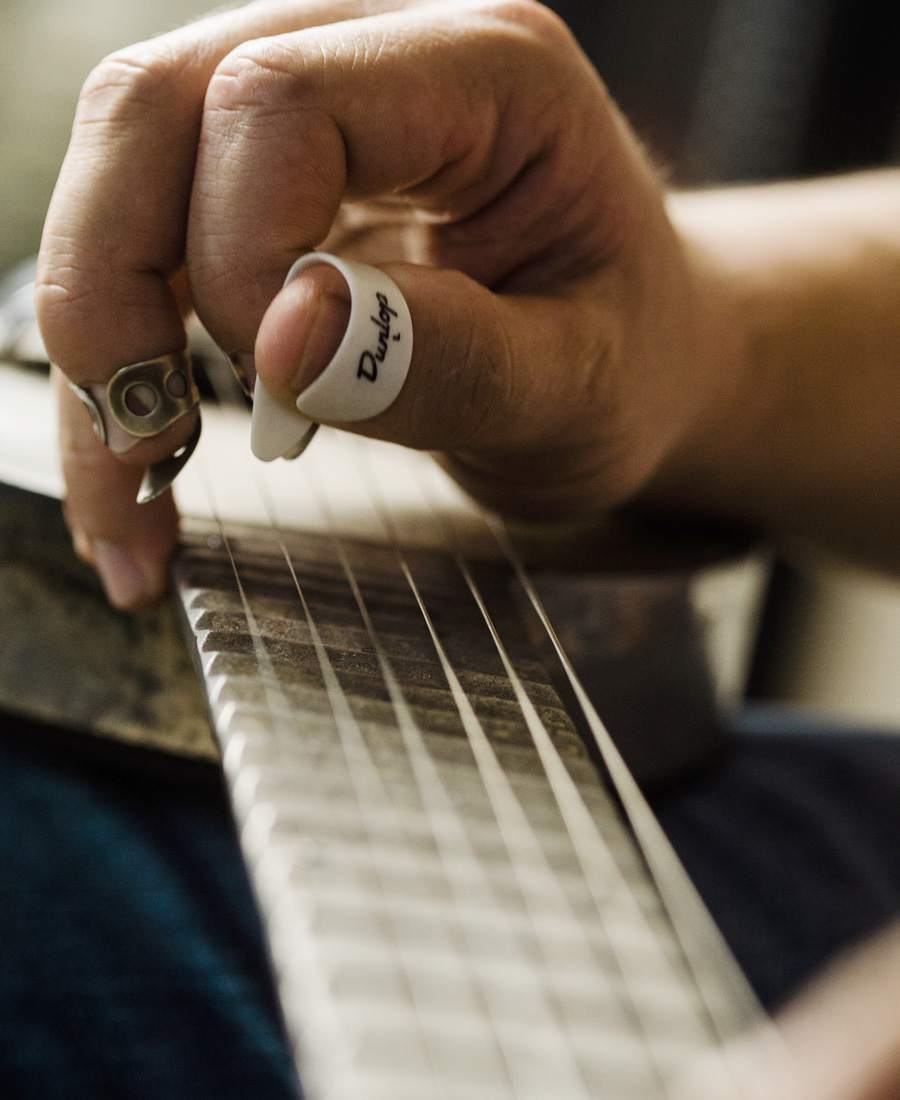Ho‘ohāli‘ali‘a ‘o Kapono Lopes, he mea ho‘okani i nā ‘ano pila like ‘ole he nui, i nā kumu nāna ia i ho‘omōhala mai i kāna ho‘okani kīkā ‘ana me kona mana‘o‘i‘o i ka ‘ao‘ao ho‘oulu o ka mele.
Growing up, I spent a lot of time with my Tutu (grandmother) and her generation. We lived in Arizona then, and a couple of my favorite things to do were to ask questions about her childhood and family history and, of course, to play and listen to Hawaiian music. I still remember long car rides listening to Hawaiian music and sitting in my room with my CD player, playing ‘ukulele along with Gabby Pahinui. Tutu and my family began to notice my interest in music and instruments from when I was young. My training began at Phoenix Boys Choir, the largest boys’ choir in the U.S., in elementary orchestra at Shumway Elementary in Chandler, Arizona, and at home kanikapila (jam sessions) with Tutu and her sister, Aunty Kaliko. Eventually, I started to really enjoy playing upright bass and auditioned for Phoenix’s Metropolitan Youth Symphony, where I became first chair and grew a great appreciation for music.

When I turned 11, our family moved back home to Kaua‘i, where I was born. I was no longer playing bass and had very little interest in music until I went to Kamehameha Schools. There, I enjoyed singing in the well-known Kamehameha Schools Song Contest and played bass for several groups, including the school’s jazz band. It wasn’t until I graduated and began working at Polynesian Cultural Center that I fell in love with making music again.
At PCC, I was taught to play guitar and bass guitar by some of the most talented and humble Polynesian musicians in the world. I was also introduced to the first steel guitarist I’ve ever worked with, Steve Cheney. I was instantly fascinated with the beautiful, magical sounds that came out of his instrument. It was warm and familiar and brought me back to long car rides with my Tutu when I’d hear Benny Rogers play with Aunty Genoa Keawe, David “Feet” Rogers and the Sons of Hawai‘i, or Gabby Pahinui and his Hawaiian band. From then on, I wanted to take steel guitar lessons, but I didn't know where to begin.

A few months later, I was asked to be a part of Aulani’s premier show, the Ka Wa‘a Lū‘au, where I met some of Hawai‘i’s top musicians. A bass player from the show, Adam Asing, took me to a local restaurant called Dot’s in Wahiawa. That’s when I met steel guitar master Uncle Bobby Ingano.
After talking with him and sharing my appreciation for steel guitar, he invited me over to his house. For the first few visits, he showed me very little on the steel guitar. Mostly he taught me what he thought was more important than learning to play a few tricks: how to be humble, to be thankful, and, above all, to have aloha. He’d tell me things like, “You can be the fastest, greatest player in the world, but if you don’t have heart, you nothing.” This old, uniquely Hawaiian style of teaching has really resonated with me since the times when I was taught by my Tutu.

To me, the steel guitar sounds old, nostalgic, and, in my opinion, Hawai‘i. When you hear the styling sounds of a Hawaiian steel guitarist, it instantly transports you. At one time, there were steel guitar players in every show and every corner of Waikīkī. Unfortunately, I can count on my fingers how many young steel guitarists we have today.
Whenever I perform, I think of all those who have mentored me: my Tutu and her siblings, Uncle Bobby Ingano, Dallin and Tia Muti, Milton Kaka, Uncle Kuki Among, Uncle Ainsley Halemanu, Kamuela Kimokeo, and anyone I’ve ever played music with. I’m blessed by all those people in my life who’ve contributed a story, a lesson, a small piece of themselves to me. And though I’ve had many mentors, they all shared with me one thing in common: Always play with feeling from the heart, and always be you.

Now, when I play with people, I really enjoy making music with, I feel full of aloha seeing people in the crowd dance and smile. I enjoy seeing how happy it makes our kūpuna (elders) feel. And when the kūpuna come up to me and share their appreciation, that means more to me than all the money in the world. Hopefully as I play more, it helps to encourage others in my generation to do the same.
In addition to the steel guitar, professional musician Kapono Lopes enjoys playing guitar, upright bass, and ‘ukulele. He performs with the Ka Wa‘a Serenaders at Aulani Resort.
Listen to @jahpono on instagram
